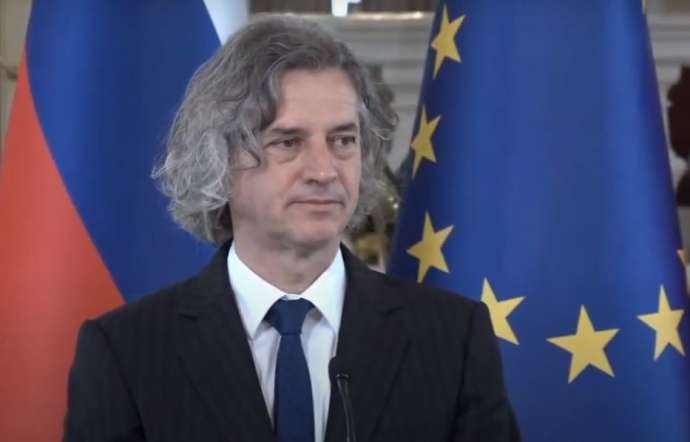STA, 19 May 2022 - The partners in the emerging ruling coalition will work hard to reach consensus both within the government and parliament, but when it proves elusive the Freedom Movement as the largest partner will tip the scales and Robert Golob as the PM will have the final say, under a protocol to be signed along with the coalition agreement.
The protocol sets out that the three parties - the Freedom Movement, Social Democrats and the Left, are equal partners in trying to smooth out their differences on proposals and will aspire to unity in communication and coordinated action.
By signing the document, the partners will commit to implementing the policies agreed by the government consistently and comprehensively, taking into consideration the prime minister's decisions, views, proposals, instructions and recommendations.
They will be required to refrain from making statements in public "in contradiction to those of the prime minister and other government members".
Appearing abroad and in contacts with foreign officials, they will not be allowed to make personal remarks about members of the government or their parties, or make comments that could harm the country. Nor will they be allowed to publish authorised texts based on information that is not publicly available.
Communication on government material will be through official e-mails and the ministers will be required to notify the coalition partners with all legislative proposals and other documents in the pipeline even before they are submitted for inter-departmental talks.
Those proposals will not be put on the government agenda until they are agreed or the deadlines for adjustment expire. Bills and proposals of implementing regulations will need to be agreed with coalition partners as well as with stakeholders such as trade unions or civil society.
If the coalition partners fail to reach consensus despite talks, the head of the respective government committee will be able to put the item on the committee's agenda but only if it is considered a priority.
If consensus is still elusive, the prime minister will call a meeting of top coalition officials in an attempt to resolve the issues. He will be able to put such open item on the government's agenda or withdraw it at any time.
The head of the deputy group of the Freedom Movement will be responsible for the coalition's coordinated action at the National Assembly. Decisions will as a rule be taken by consensus among the heads of coalition deputy factions and will be binding.
If coalition deputies do not want to back proposals agreed within the coalition in parliament, they will need to inform of their intention their deputy group head, who must in turn notify the other coalition partners.
If they want to support the opposition's proposals, they need to notify the minister in charge and coalition partners of their intention and try to reach consensus in coalition talks. If consensus is not reached, coalition MPs will vote against opposition-sponsored proposals.
Coalition partners also commit to refrain from submitting or supporting motions of a vote of confidence or non-confidence in ministers or the government, or proposals to dismiss the speaker or deputy speakers from the coalition ranks.
Another annex to the coalition agreement is a document that sets out programme priorities as intergenerational cooperation, climate policy, health and Slovenia in the core EU. As values of coalition cooperation it lists respect, freedom and responsibility.
As the country's key goals by 2026 it sets out a new social pact to ensure intergenerational alliance with emphasis on a strong social and housing policy, a green breakthrough, top-quality healthcare for all, a strong economic and regional development, accessible and quality education for all ages, and development of science and sport.
If a partner should decide to quit the coalition, they need to inform the prime minister and the leaders of other coalition partners, only then they can formally resign and the public shall be the last to be let known about the move.







